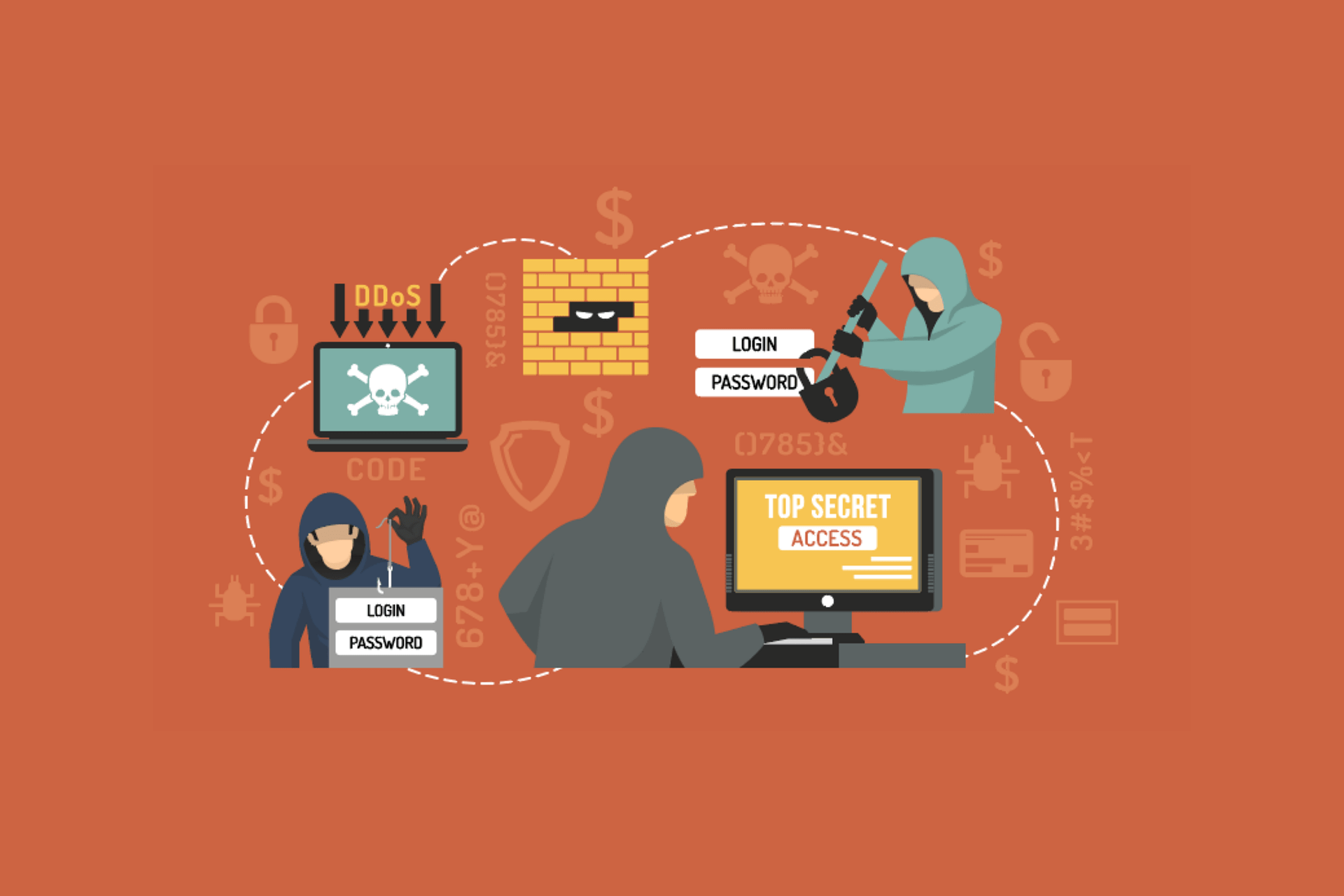How to protect yourself from online fraud.
Online fraud is rampant across the globe. The number of online crimes you could fall victim to grows every day. We are learning, even before we fully understand the world wide web, that the internet is infinite. It is a world of its own. One can completely exist on the internet without ever needing to leave the house. That is how infinite the data and information on the internet is.
As good as this might be for convenience and everyday life, especially in a pandemic, every Yin has its Yang. There is a dark side to the internet that could completely upend your life. It can completely ruin it. Online fraud is just one of the many dark sides of the internet.
Understanding fraud.
Before we start talking about online fraud, we need to understand the nature of fraud itself.
Fraud is an act of deception.
Fraud is a type of deception someone undertakes for financial or personal gain. Fraud is a punishable crime. Fraud has the power to affect you in many ways. Fraud could lead to you incurring unknown debt, identity theft, and more.
What is online fraud?
Online fraud is when a person uses the internet to defraud victims and take advantage of their victims. Online fraud is deception for the purpose of tricking victims out of money, property, and more.
What is the difference between online fraud and cyber theft?
The two are very similar. They do, however, have a few differences. Cyber theft does not necessarily involve fraudulent activity. In fact, cyber thieves usually steal things that are easier to retrieve or demand less effort than other forms of thievery.
It is easy for hackers to steal without the need to pretend to be someone else in order to commit cyber theft. Online fraud involves your personal information and identity.
What are the most common types of online fraud?
The spectrum for online fraud is wide. As the world has moved more towards remote working and online schooling, we are now more dependent than ever on our mobile devices, laptops, and computers. Online fraud can take place in several settings, so let’s explore those next.
E-commerce fraud:
There are many forms of e-commerce fraud. It’s essential to know how to handle them so that you can stay protected. In most cases, internet users fall victim to scams because they are unable to verify their validity.
How to stay protected:
- Doing research on the website before they place the order: Before you enter your card details it is important to do your research. Is it the correct domain? Are there any reviews? Do you get redirected to a different website?
- Shopping at secure websites: If you want an Apple product you’re not going to log on to the Samsung website. The same can be said with any online store. It’s best to always buy from the official website.
- Reading the site’s policies on privacy and security: It might seem a bit tedious and unnecessary. Reading, even if you just skim through, the site policies will help in terms of verifying validity. Tip: Check to see if the site is secure by looking carefully at the URL. It should start with “https” in your browser bar, and the website URL should match the site you’re buying from.
- Being mindful of cookies: If it isn’t the baked kind, then it’s best to always be wary of cookies. It’s usually best to only allow required cookies rather than all cookies.
Online banking fraud:
One kind of online fraud that has been growing increasingly more common recently is online banking fraud. Online banking fraud occurs when a perpetrator gains access to your bank account. The fraudster then starts transferring money out of your account. How does online banking fraud usually happen?
- Phishing:
Phishing is a type of scam where fraudsters pose as companies and websites that users may already be familiar with. This is done to trick you into sharing your personal information. Fraudsters trick their victims into visiting fake websites that appear to be legitimate. The websites will require you to give personal information, including bank details and passwords.
- Vishing:
Vishing happens when a fraudster pretends they are from a company or are an authority. The fraudster calls you asking for you to verify your details over the phone. This information is then used illegally. By persuading you to “update” your account information they get access to your personal details. giving them your credit card number over the phone. Vishing is definitely very scary and stressful. You need to be extra careful.
- Malware:
Malware is like a virus. Malware ‘hijacks’ your device if you download something from the internet or if you open a file attachment sent via email. Your device becomes “infected.” Fraudsters use malware to “interrupt” your online banking session and present you with a fake webpage that looks exactly like the authentic one. The usual prompt is to enter credit card and bank details. This is the information used by fraudsters to gain access your online accounts and make fraudulent payments
Can online fraud be prevented?
Yes, there are measures that one can put in place to prevent online fraud. It’s important to always remember that as long as you’re personally transacting online, you’re at risk.
Tips to prevent online fraud:
- Keep your devices updated: If you use the same devices for a bulk of your transactions, it’s best to keep them up to date. This means that your devices should have the latest software, the latest web browser and the latest operating system.
- Set strong passwords: Don’t just use your birthdate. When setting up your password, try to go for something that’s strong. Most websites will tell you the required strength of your password. Use a password generator, or adopt a personalised strategy for creating your passwords. Password security is an absolute must for all your online activities.
- Two factor authentication: This acts as a second wall of protection when fraudsters are trying to access your account. It might seem a tad bit annoying to have to authenticate every time you use a different device. It is, however, very important.
- Secure internet connection: Free Wi-Fi is great. It is also very unsafe and dangerous for you and your device. When you’re connected to an internet connection that is not secure, you’re susceptible to online fraud.
- Privacy Setting: It is important to keep your personal information personal. When surfing the world wide web makes sure your privacy settings are properly locked down.
Reporting online fraud
As a Bidvest Insurance Cyber Rescue client, you have direct access to our dedicated IT helpline. Our team of highly trained agents will advise you on the best way forward.
If you believe that you’ve been a victim of online fraud these are the three things to do:
- Contact the online retailer: If you feel like you are being scammed, contact the online retailer. It can be via call, email or leaving a message using website forms. Provide the online retailer with as much information as possible.
- Contact your bank: If you see a transaction has occurred without your knowledge, contact your bank immediately. Most debit orders and payments are usually reversible. It is also advised to block and cancel your card until the matter is resolved.
- Contact authorities: Online fraud is a criminal offence. If you are a victim of an online scam you need to notify the police.
What types of cyber crimes does Cyber Rescue cover?
The internet is a great place. Unfortunately, it’s not always a safe place. There are a number of cyber crimes one can fall victim to. You need cyber insurance that gives you the best cover. Our Cyber Rescue policy covers you for these cyber crimes:
- Cyber Theft: If you are a victim of cyber theft, your Cyber Rescue policy will reimburse money stolen due to a cyber attack.
- Cyber Bullying: Cyber Rescue provides legal advice and mediation services, if you become a victim of online bullying.
- Cyber Liability: Cyber Rescue provides legal assistance if you’ve been accused of causing a cyber threat.
- Cyber Deception: If you find yourself victim to a cyber scam or trickery, Cyber Rescue ensures you’re not left out of pocket and that your devices get set back on track.
What other benefits does Cyber Rescue have?
- IT Helpline: Cyber Rescue’s IT Helpline is like your online armed response team. We have a team of IT professionals who can quickly mobilise to help you fight off attackers.
- Device Restoration: By identifying the source of the attack, our IT professionals can help to prevent further losses. Cyber Rescue’s device restoration benefits assist with cleaning your device,
- Anti-Virus Software: Cyber Rescue provides you with state of the art, commercial grade Anti-Virus Software, at no extra cost. Anti-Virus software helps protect you against an attack.
While the internet has made our lives easy, it has also opened the doors to online fraud.
Malware, phishing, and other scams are easy to fall victim to. When your personal information, credit card details and other vital information are stolen, your life can come to a standstill. It’s important that you take precautions to protect yourself. Cyber Rescue is your best protection against the dark side of the internet.
Sources:
American Bankers Association, 2016. Seven tips to avoid online fraud. Available online at: https://www.centralbank.net/personal/security/security-news/seven-tips-to-avoid-online-fraud/ [Accessed 05 January 2022].
Businesstech.co.za, 2021. These are the banking scams you should look out for in South Africa right now – with fraud on the rise. Available online at: https://businesstech.co.za/news/banking/506418/these-are-the-banking-scams-you-should-look-out-for-in-south-africa-right-now-with-fraud-on-the-rise/ [Accessed 05 January 2022].
van der Kleut, J. What is vishing? Tips for spotting and avoiding voice scams. Available online at: https://us.norton.com/internetsecurity-online-scams-vishing.html [Accessed 05 January 2022].




